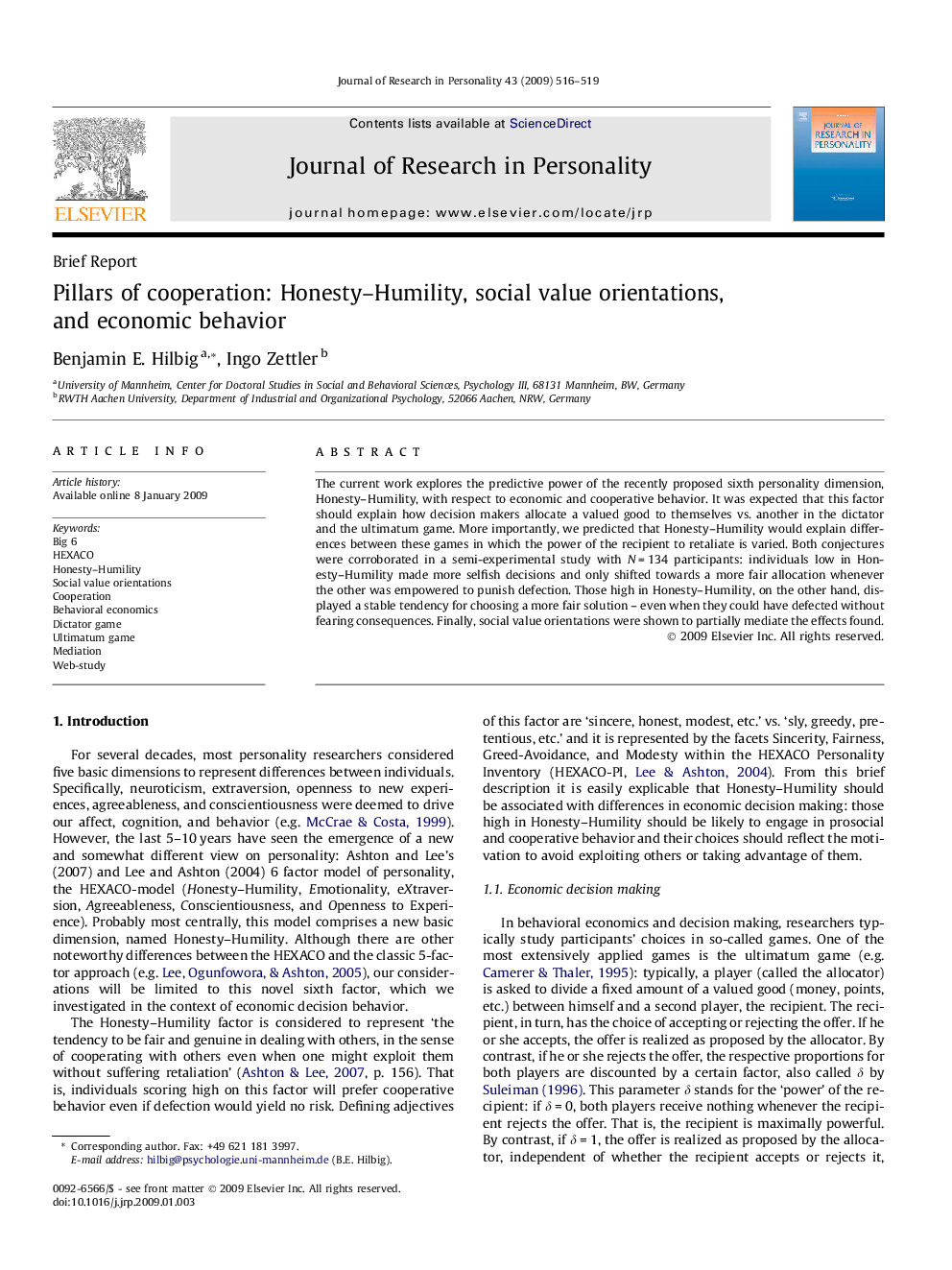| Article ID | Journal | Published Year | Pages | File Type |
|---|---|---|---|---|
| 951777 | Journal of Research in Personality | 2009 | 4 Pages |
The current work explores the predictive power of the recently proposed sixth personality dimension, Honesty–Humility, with respect to economic and cooperative behavior. It was expected that this factor should explain how decision makers allocate a valued good to themselves vs. another in the dictator and the ultimatum game. More importantly, we predicted that Honesty–Humility would explain differences between these games in which the power of the recipient to retaliate is varied. Both conjectures were corroborated in a semi-experimental study with N = 134 participants: individuals low in Honesty–Humility made more selfish decisions and only shifted towards a more fair allocation whenever the other was empowered to punish defection. Those high in Honesty–Humility, on the other hand, displayed a stable tendency for choosing a more fair solution – even when they could have defected without fearing consequences. Finally, social value orientations were shown to partially mediate the effects found.
